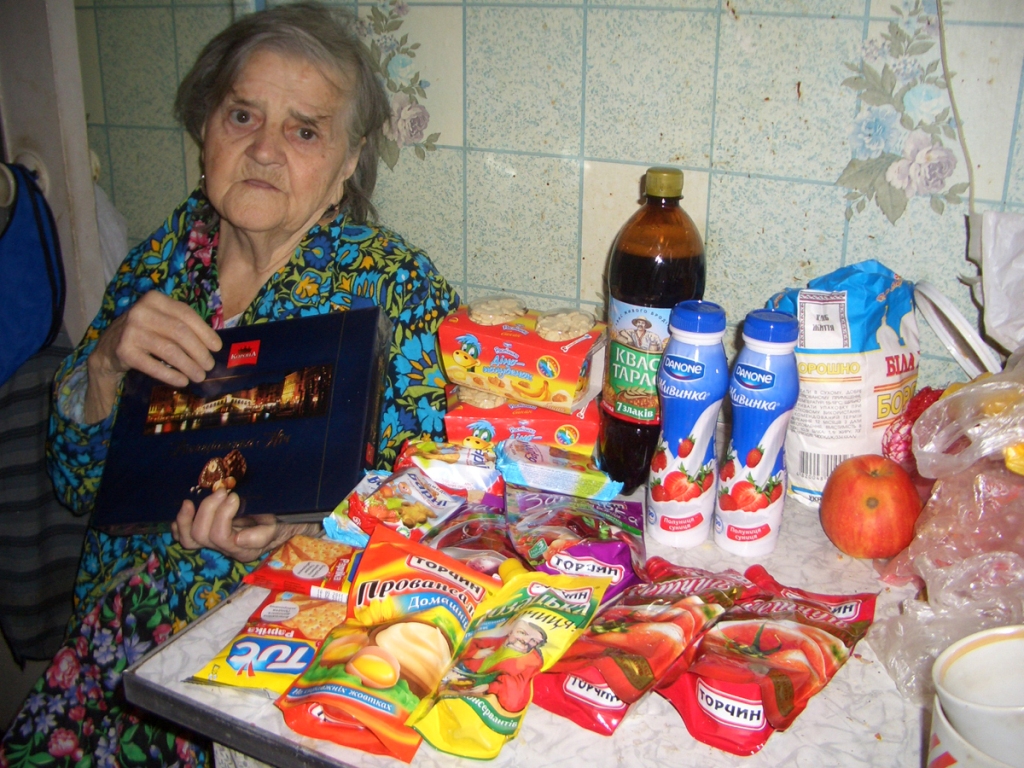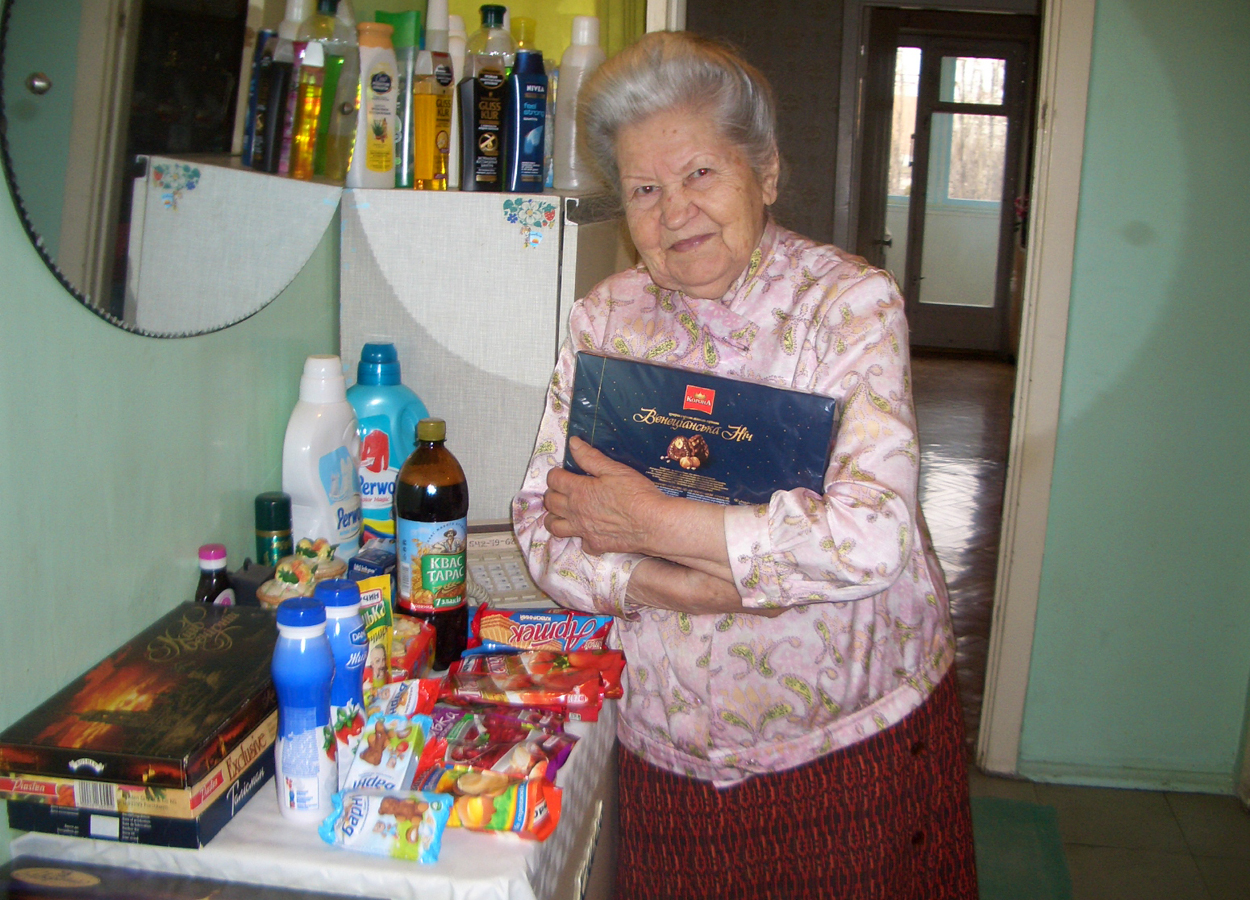
16.12.11
Recently Caritas Kyiv together with the Kyiv City Charitable Foundation Foodbank visited 40 disabled individuals and distributed grocery items to them. The visits were conducted by employees of Home Care which is under the supervision of Olh’a Osadcha. Thanks to these dedicated social workers, elderly isolated individuals have gotten help in Kyiv for many years.
Fr. Roman Syrotych, Director of the local Caritas explains that this event coincided with the International Day of Persons with Disabilities but in reality was not connected with it. To show respect for and to help individuals during specially designated holidays is not how Caritas operates. “Needy individuals need help and understanding every day. They need support and the simple opportunity to enjoy the same rights, interests, opportunities that those around them enjoy,” says Fr. Roman who has worked in the charitable sphere for many years.
For the 13th year in a row Ukraine has observed International Day of Persons with Disabilities on 3 December with the rest of the world community. It started in the 1980s when the United Nations announced 1983-1992 the Decade of Disabled Persons. The programme was signed 3 December 1992 (resolution 47/3), and the day was chosen by the General Assembly to be International Day of Persons with Disabilities. Standard rules for protecting equal access for the disabled were accepted at a meeting of the UN General Assembly on 20 December, 1993 (resolution 48/96). Ukraine voted in favour of this resolution.
48/96). Ukraine voted in favour of this resolution.
Today, according to statistics from the Ministry of Labour and Social Policy, 2.47 million disabled individuals live in Ukraine, of them 153,000 are under the age of 18. With every year this figure grows. The causes vary: ecological, low standard of living, work injuries, motor vehicle accidents, and the general poor health of citizens.
“Every year malignant tumours prevent thousands of people from living full lives and force them to join the ranks of the “disabled;” the TB infection rate also grows annually. The most horrifying fact however, is that every year increasingly younger people join the ranks of the disabled. The number of newborns and those who have not yet reached retirement age are increasingly being added to the list of the disabled.
Society must consolidate their efforts to arrest this terrible phenomenon of increasingly younger people becoming “disabled” which is currently growing by leaps and bounds. Similarly—though paradoxically—the stigma of being disabled is growing. While the state is experiencing significant instability, inhabitants, charitable organizations, young activists and social groups are fighting these  unhealthy tendencies.
unhealthy tendencies.
The Home Care and Social Integration and Rehabilitation for Disabled Individuals projects run by Caritas Ukraine have been caring for the disabled for many years; recently they also started funding treatment for children with cancer in L’viv. Regional organizations, according to their abilities, give direct assistance to seriously ill individuals.
We have the experience and systematic vision to support them financially, socially, psychologically and spiritually,” comments Anatoliy Kozak, Secretary General of Caritas Ukraine when commenting on social inclusion of the disabled in Ukraine.
Tags:

